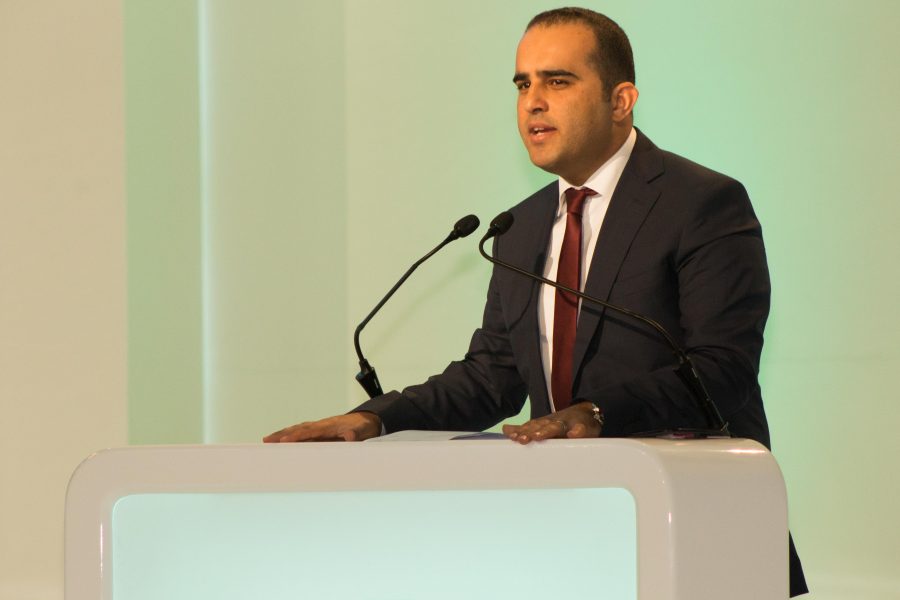Arab journalists discuss challenges to practicing journalism in the Middle East
During Sunday evening’s Town Hall Meeting titled, Covering the Arab World: Documenting Change, a panel of journalists explored the current dangers that journalists face while reporting in conflict zones and facing a lack of press freedom in the Arab region.
Keynote speaker Tawakkol Karman, a journalist and a Nobel Prize Laureate from Yemen, stressed the importance of freedom of speech in the Arab world and pointed out the issues that comes with media repression.
“Now, the freedom of expression does not exist,” she said. “People are slaughtered on the streets for their continued struggle for freedom of expression.”
She added that if anyone tries to seek access to information, they could end up in prison, tortured or worse.
Yara Badr joined the panel in behalf of her husband, Mazen Darwish, a Syrian attorney and free speech advocate, who was recently released from prison. Darwish could not make it to Qatar for the conference, but he joined the proceedings briefly via Skype to thank IPI and Al Jazeera for their efforts and advocacy on his behalf throughout the years of his imprisonment in Syria.
Badr, who runs the Syrian Center for Media and Freedom of Expression with her husband, said that it is difficult to figure out who is a journalist in Syria because there are so many media activists, many of whom don’t share the same professionalism as journalists. Most of these activists are people who have been personally affected by the situation in Syria, and they struggle to remain objective.
Badr pointed out that another problem is that the government and authorities in Syria, as well as in other Arab countries, use the law against journalists.
Rana Sabbagh, executive director of Arab Reporters for Investigative Journalism (ARIJ) from Jordan noted similar challenges in her country.
“Any journalist can become a traitor,” she said. “What has happened is that a lot of forces merged together and basically got the upper hand in the battle against independent media.”
A lot of Jordanian journalists struggle with self-censorship and a lack of public support, she said. The Jordanian public does not want to hear negative news. People are fed up with news about death, destruction, and chaos.
Laws on the books can be used against journalists, and she noted that several of her colleagues had been brought to court.
“The whole dream of access to information has disappeared,” she said.
Not everything happening in the Arab world is negative, though. Tunisia’s new constitution gives Sabbagh some hope with regards to press freedom.
“Nobody can tell a journalist not to write something,” she said.
But, private-owned media can still be rife with corruption and conflict of interests. That should not deter journalists because “it is our job to be the watch dogs for the society,” Sabbagh said.
Such advocacy plays an important role for the public and even jailed journalists. Abdullah al-Shami, an Al Jazeera journalist who was jailed in Egypt, said campaigns that put pressure on governments to allow journalists to practice freely make a difference. He said they gave him encouragement when he was in jail.
Speaking on behalf of his 90 fellow Egyptian journalists who are still jailed, he asked everyone in the conference to use every avenue to urge their release.













